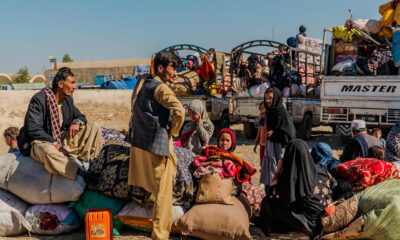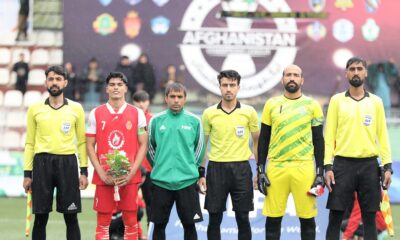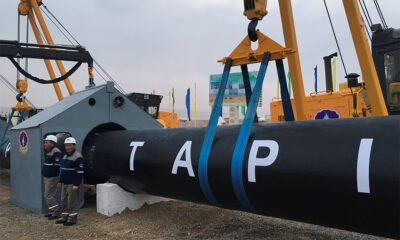Latest News
Azizi says investing in Afghanistan made easy for Iranians
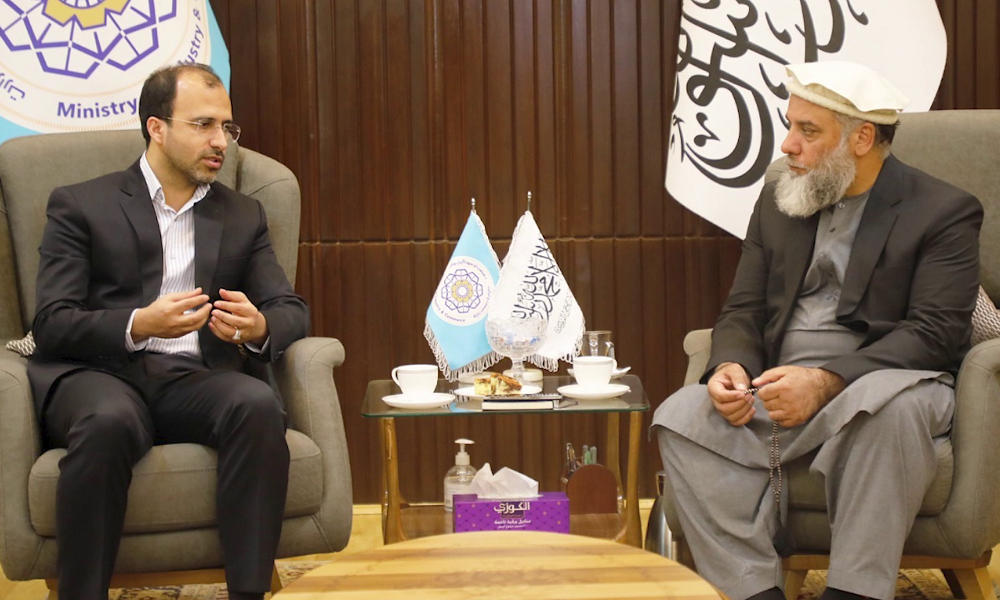
The Acting Minister of Industry and Commerce Nooruddin Azizi said in a meeting with an Iranian delegation, led by the Deputy Coordinator of Economic Affairs of Razavi in Khorasan province, that Iranians can invest in Afghanistan “as if they were Afghans”.
Azizi said the paperwork needed for Iranians has been simplified and that traders can now pursue opportunities as they wish.
MoIC spokesman Abdul Salam Jawad Akhundzada quoted Azizi as saying: “The Acting Minister of Industry and Commerce of the Islamic Emirate of Afghanistan asked the delegation of the Islamic Republic of Iran that now the process of documents is easier than in the past and they can invest like an Afghan and use this opportunity the way they want.”
Abolfazl Chamandi, deputy economic affairs coordinator of Razavi, said that they were ready for joint investments in various sectors with Afghanistan and that relations between the two countries were strengthening.
“We are ready to provide information on the progress of the activities regarding the agreements that were made between the two countries during the recent visit of Mullah Abdul Ghani Baradar, the economic deputy of the prime minister, and we are moving to implement the agreements step by step,” Chamandi said.
Meanwhile, some experts said that due to security and stability in Afghanistan, investors from neighboring countries, especially Iran, can invest in Afghanistan and Tehran can expand its business relations with Kabul.
Currently, Iran is considered Afghanistan’s largest trading partner, and once Afghan traders start using Chabahar port more, trade relations between the two countries will strengthen.
Latest News
Red Cross official seeks ‘staggered’ return of Afghan refugees from Pakistan
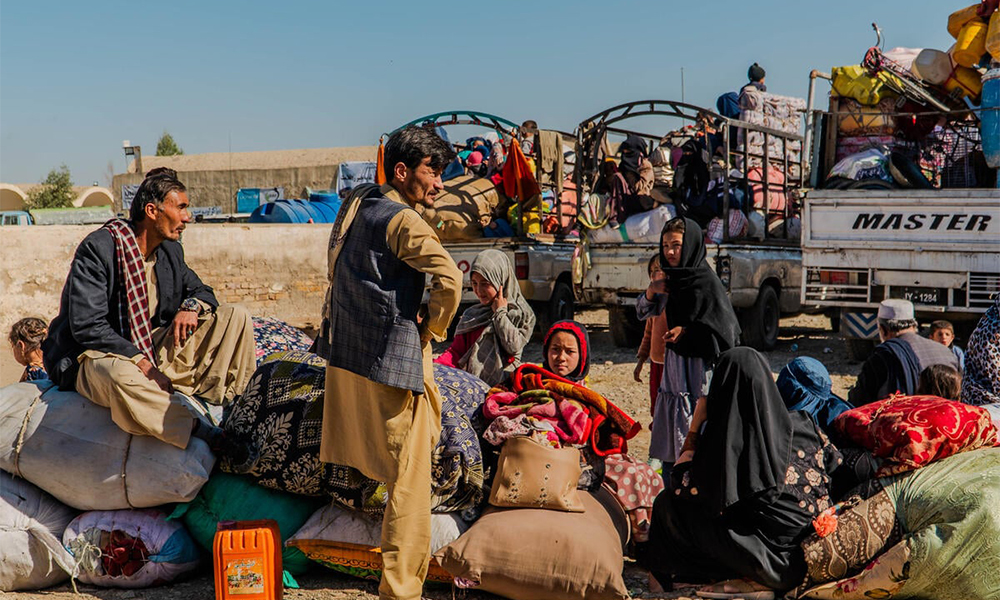
A senior Red Cross official has called for the return of Afghan refugees from Pakistan to occur “in a more staggered way” so Afghanistan can better absorb them.
“It will be important to work with the government of Pakistan in 2024 to ask that if there are going to be returnees,” that they arrive “in smaller numbers at a time just so it is more manageable on the Afghan side,” said Alexander Matheou, regional director, Asia Pacific Region for the International Federation of the Red Cross, Voice of America (VOA) reported on Saturday.
Speaking in the Qatari capital, Doha, Matheou told journalists on Friday the challenges facing Afghan returnees from Pakistan was one of several pressing issues he discussed with the officials of the Islamic Emirate in Kabul.
“You will be aware that over half a million have crossed the border over recent months, and it is likely that we will see large numbers of new arrivals in the coming months,” he said.
“I imagine this is probably the largest population flow in a short period of time in Asia since the population movement from Myanmar into Bangladesh in 2017,” he added. “So, it is a significant event.”
Since October, Pakistan has expelled more than 500,000 Afghan refugees who lacked proper documentation.
Matheou noted many of the returnees have lived in Pakistan for decades and are ill-equipped to begin a new life in a country that to them is unknown, without government or international support.
He described the returnees as being in generally poor health, especially the children, who account for nearly half of all returnees.
“The evidence of that was we visited clinics where they reported a real spike in cases of acute malnutrition coming from the arrivals from Pakistan.
“We visited routine immunization programs of the IFRC and the Afghan Red Crescent in the villages, and there it was clear looking at the children that as well as being anemic, you could see wasting and stunting among the children,” he said.
Latest News
Turkmenistan committed to complete TAPI energy project
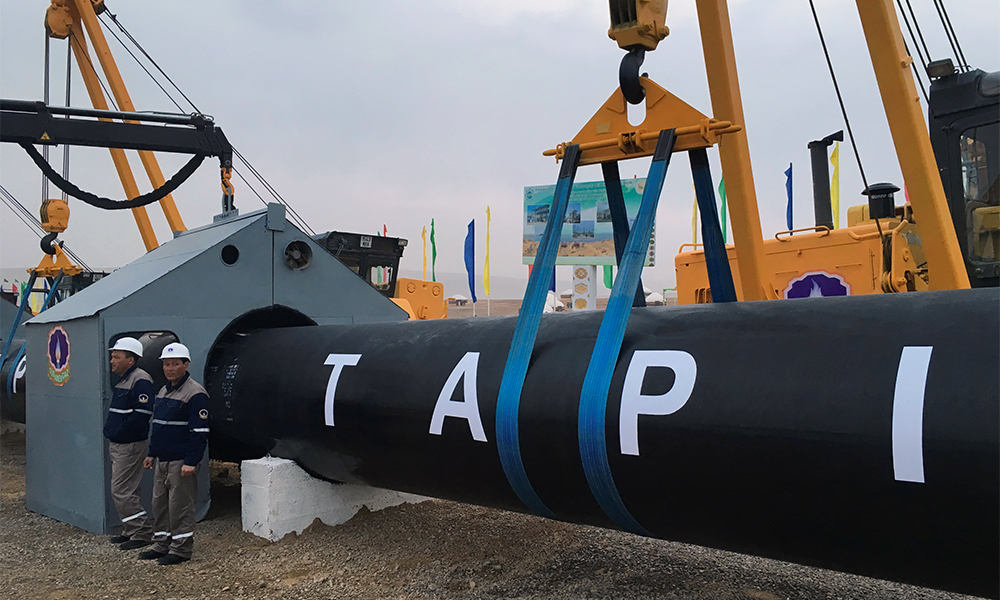
Turkmenistan is committed to complete the Turkmenistan–Afghanistan– Pakistan–India (TAPI) energy project together with the regional countries, Muhammetmyrat Amanov, CEO of TAPI Pipeline Company Limited, said.
“Turkmenistan is making significant progress on the TAPI natural gas pipeline, which aims to supply 33 billion cubic meters annually to South Asia” Amanov said speaking at the Turkmen Energy Investment Forum (TEIF 2024) in Paris.
He highlighted that the Turkmenistan section of the pipeline is complete and the ongoing discussions to advance the project beyond Turkmenistan are in strict alignment with international standards.
Amanov said the project emphasizes environmental sustainability by leveraging natural gas to reduce emissions significantly compared to coal and oil, thereby tackling indoor pollution and enhancing regional air quality.
“In light of the ongoing project developments, Turkmenistan remains committed to upholding international law, fulfilling its obligations, and adhering to international norms and regulations,” he stressed.
Latest News
Three road construction projects launched in Kabul
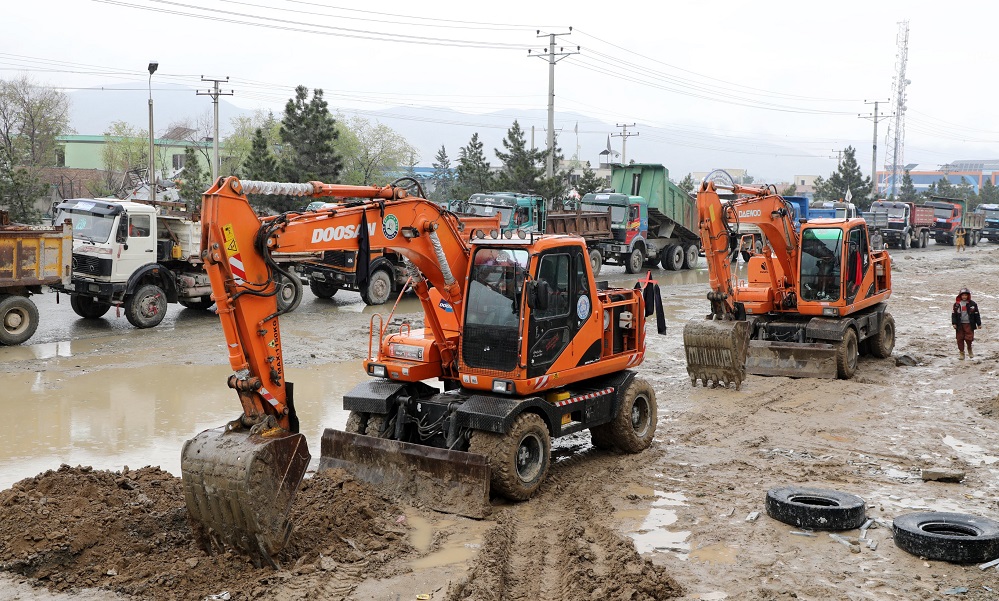
Three road construction projects worth about one billion Afghanis started in capital Kabul on Saturday.
The projects were inaugurated by Deputy Prime Minister for Economic Affairs Mullah Abdul Ghani Baradar.
The projects are: the second phase of Kotal Khairkhane road, the first part of the Shahid square to Qasaba, and the Airport road to Gumruk.
In the inauguration ceremony, Mullah Baradar said that Kabul municipality is working hard to beautify and regulate the city, and people should cooperate with the government in protecting public benefit projects.
He directed the officials of Kabul municipality to complete the mentioned projects on time and with good quality.
The second phase of Kotel Khairkhaneh road is 2.5 kilometers long and 60 meters wide. Thie road will cost 364 million Afghanis and will be completed in 20 months.
The Shahid square-Qasaba road is 1.8 kilometers long and 45 meters wide, which will be built at a cost of 175 million Afghanis in one year.
The Airport-Gumruk road is 2.7 km long and 60 meters wide, which will be completed at a cost of 407 million Afghanis in 20 months.
The projects are funded by Kabul Municipality.
-

 World4 days ago
World4 days agoNorth Korea officials visit Iran in a rare public trip
-

 Sport4 days ago
Sport4 days ago‘Serious talent’ Fraser-McGurk bonds with Warner to light up IPL
-

 Latest News4 days ago
Latest News4 days agoOver 1,000 Afghan refugees forced out of Pakistan in one day
-

 Regional2 days ago
Regional2 days agoNew UK sanctions target Iranian drone industry
-

 Sport2 days ago
Sport2 days agoAfghanistan beat Iraq 5-3, inch closer to Futsal World Cup berth
-

 Regional3 days ago
Regional3 days agoTurkey accuses U.S. of double standards over Gaza in rights report
-

 Latest News2 days ago
Latest News2 days agoEU allocates 17 million euros to support Afghans on the move
-

 Latest News1 day ago
Latest News1 day agoPakistan extends registered Afghan refugees’ stay till June 30


